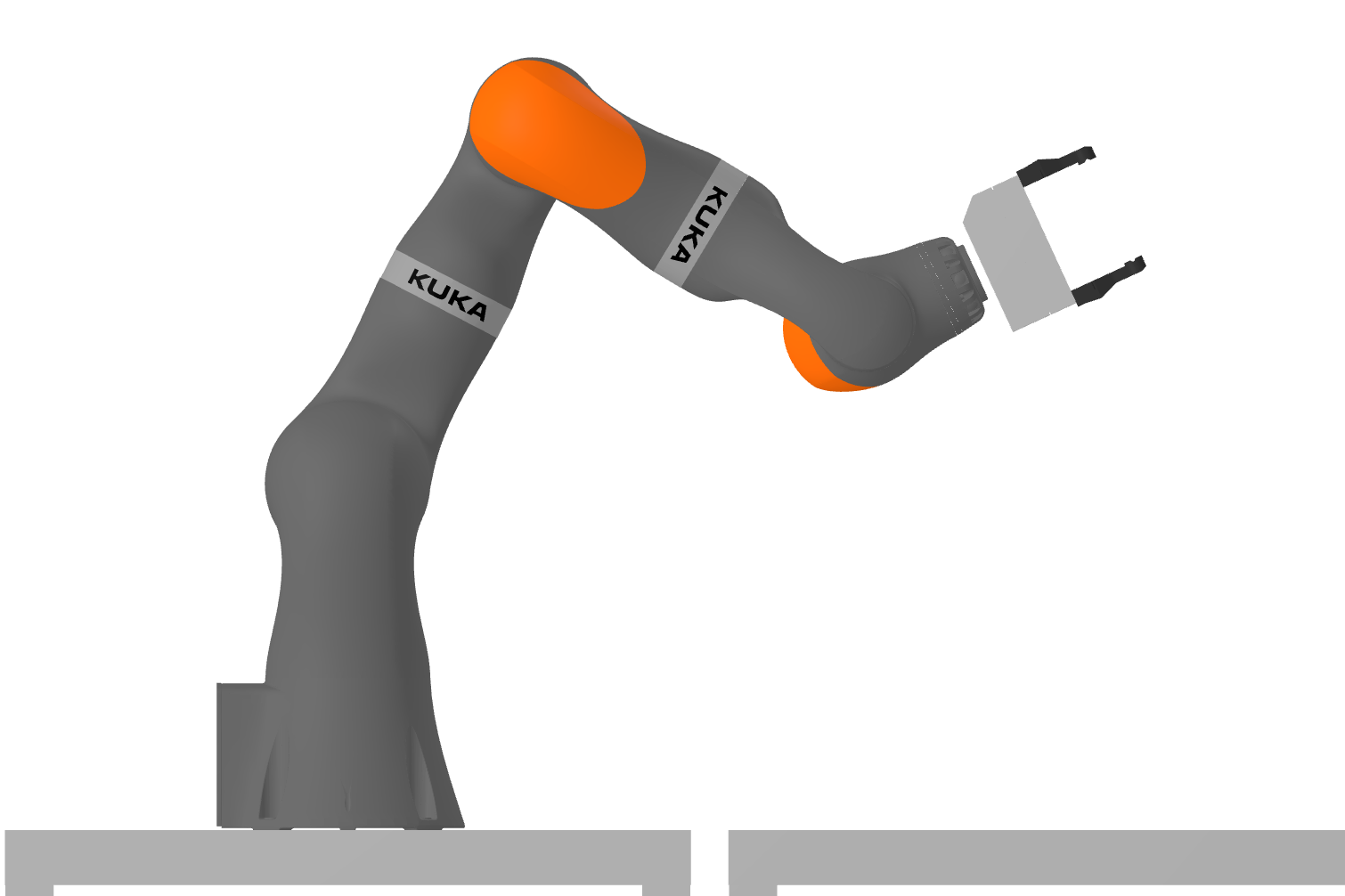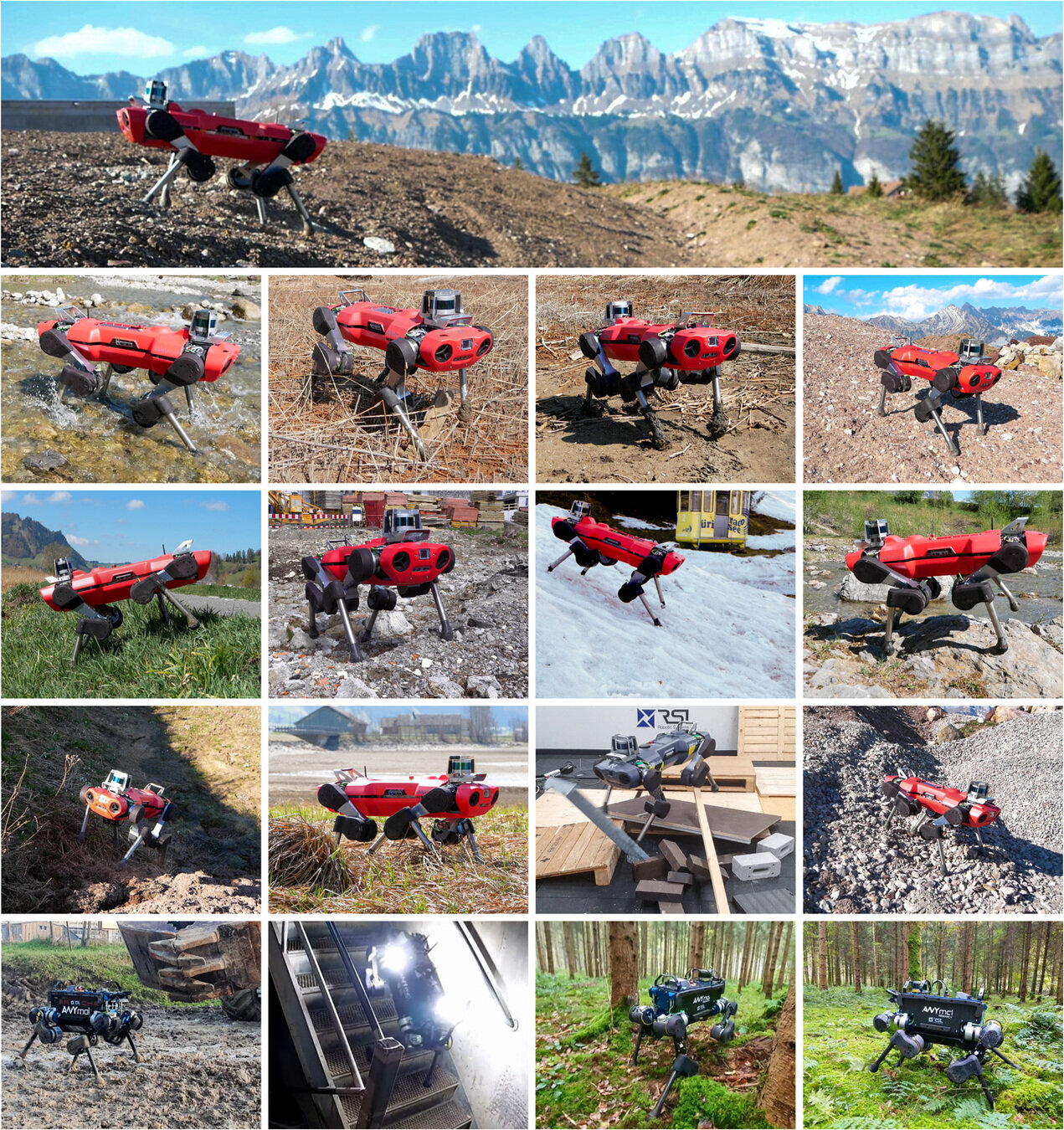Reinforcement Learning
(Part 1)

MIT 6.421:
Robotic Manipulation
Fall 2023, Lecture 19
Follow live at https://slides.com/d/HoT1aag/live
(or later at https://slides.com/russtedrake/fall23-lec19)


Levine*, Finn*, Darrel, Abbeel, JMLR 2016
Last time: Visuomotor policies

perception network
(often pre-trained)

policy network
other robot sensors
learned state representation
actions

x history
OpenAI - Learning Dexterity
Recipe:
- Make the simulator
- Write cost function
- Deep policy gradient
Ex: OpenAI Gym \(\Rightarrow\) Gymnasium
import gymnasium as gym
class FooEnv(gym.Env):
metadata = {'render.modes': ['human']}
def __init__(self):
...
def step(self, action):
...
def reset(self):
...
def render(self, mode='human'):
...
def close(self):
...https://gymnasium.farama.org/
import pydrake.all
builder = DiagramBuilder()
....
diagram = builder.Build()
simulator = Simulator(diagram)
simulator.AdvanceTo(...)
observation = sensor_output_port->Eval(context)
reward = reward_output_port->Eval(context)
context = diagram.CreateDefaultContext()
meshcat.Publish(context)DrakeGymEnv
from pydrake.gym import DrakeGymEnvDeep RL + Teacher-Student


Lee et al., Learning quadrupedal locomotion over challenging terrain, Science Robotics, 2020

Deep RL + Teacher-student (Tao Chen, MIT at TRI)
OpenAI - Learning Dexterity
"PPO has become the default reinforcement learning algorithm at OpenAI because of its ease of use and good performance."
https://openai.com/blog/openai-baselines-ppo/

model = PPO('MlpPolicy', env, verbose=1, tensorboard_log=log)
stable_baselines3/common/policies.py#L435-L440
# Default network architecture, from stable-baselines
net_arch = [dict(pi=[64, 64], vf=[64, 64])]Policy Architecture
Actions
Observations
builder.ExportOutput(inv_dynamics.get_desired_position(), "actions")Network
builder.ExportOutput(plant.get_state_output_port(), "observations")approximately:

Cost Function
angle_from_vertical = (box_state[2] % np.pi) - np.pi / 2
cost = 2 * angle_from_vertical**2 # box angle
cost += 0.1 * box_state[5]**2 # box velocity
effort = actions - finger_state[:2]
cost += 0.1 * effort.dot(effort) # effort
# finger velocity
cost += 0.1 * finger_state[2:].dot(finger_state[2:])
# Add 10 to make rewards positive (to avoid rewarding simulator
# crashes).
output[0] = 10 - cost
CMA-ES

https://en.wikipedia.org/wiki/CMA-ES
"Domain Randomization"

(Image source: Tobin et al, 2017)
Should we expect this to work?
- Do we need the over-parameterization of deep policies?
- Is there a comparable story to interpolating solutions in high-dimensional policy space?



Schulman, John, et al. "Proximal policy optimization algorithms." arXiv preprint arXiv:1707.06347 (2017).


https://spinningup.openai.com/en/latest/algorithms/ppo.html